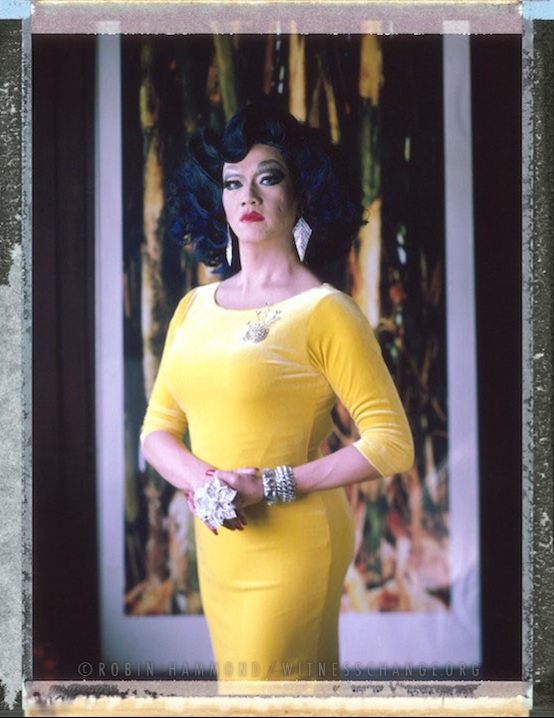Shelah! / Malaysia
“I love my country. I may not want to be here some days, but don’t you dare say I don’t love my country. I’m a satirist. I’m an entertainer. And yes I’m a drag queen. Quite a public one in fact, It’s funny how ‘public’ I am considering the sociopolitical climate of Malaysia. I guess that’s what drives my work. I believe in the people and whatever is left of it’s spirit.” Shelah!!! Was a radio presenter for BFM before The Censorship Commission silenced her program. “they still haven’t told me why I was taken off the air.”
“What hurts me is when I’m told to ‘reign in’ what i do best. There’s a lot of don’ts. And not much trust. What people don’t seem to realize is how attuned we are to everything around us. A drag queen, to me is a mirror. I see as you see. When you tell me to stop because of your own narrow perceptions. You have blinded both of us .
My parents raised me well. To be fair, to be tough and to always enjoy myself. I’ve always done what I think was given to means to give back to whoever wants it. Positive living I guess. To be the best I was meant to be and to share that being. It’s difficult to just be. Society says one thing, your heart says another and then your head has other ideas.
Like many, I have battled with my identity with family, with people I meet. It’s hard but I’ve learnt to answer questions and I’m still learning to deal with the ‘dont’s’. You just don’t know how we’ve affected each other.”
During the day Shelah is Edwin. Edwin is a committee member of Seksualiti Merdeka a LGBT movement/collective in Malaysia. Seksualiti Merdeka provides a safe and open space for people to share their stories and learn about legal rights, safe sex and police discrimination. In 2011, police broke up the 4th Seksualiti Merdeka festival after it was labeled “The Sex Club” by politicians and the media. Seksualiti Merdeka has not taken place since.
“I feel so passionately about this because this is where Shelah first officially appeared in the world. It’s very upsetting. I thought I had found my own safe space. It’s painful when you see something of such great potential breaking down.”
In some respect things are going backwards” Shelah! says, “there are sectors of the Malay community that look at the LGBT community as a big no, no… There is no differentiation in the minds of politicians between Malay and Islam. They feel like LGBT people are a challenge to the Malay identity. The funny thing is that 20 years ago, drag queens were visible. Malaysia is in the middle of a racial, political, sexual identity crisis… We are not fighting for LGBT issues, we’re fighting for basic human rights – the right to be!”




